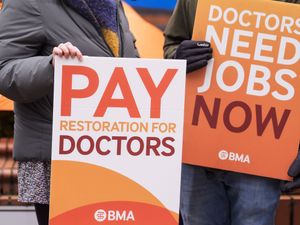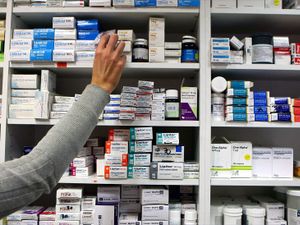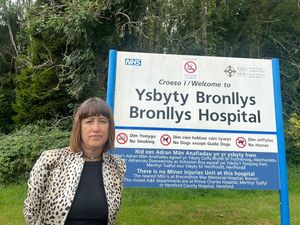Are you following doctor's orders?
Thousands of people across Shropshire and Mid Wales take long-term medication for chronic health conditions.
Yet new research shows that nearly half are putting their health at further risk by not taking their drugs correctly.
Reasons range from forgetfulness or worrying about side-effects to 'being too busy', or even not liking the colour or size of a pill, and less than a third of those with long-term conditions feel confident about the way they manage their medicine.
Taking medication doesn't sound like a complicated task, but when people have several different drugs to take at different times every day, it can easily get confusing or labourious, says Lloyds Pharmacy pharmacist Nitin Makadia.
"Taking medication may sound as easy as reading the instructions on the packet, but for people with one or more long-term conditions with a number of medicines to take each day, it can be difficult to remember to take them all exactly as advised," he explains.
"This may not seem important, but it's vital to take medicines properly. For example, some have to be taken at a certain time and some need to be taken with – or without – food, in order for them to be as effective as possible.
"Nearly half of those with a long-term condition have struggled to cope with their medicines, and almost eight in 10 of them don't take their medications properly simply due to forgetfulness.
"The study also found that other reasons included not really understanding why they need to take their medication and being worried about the side-effects – problems which could be addressed by simply having a conversation with a pharmacist."
He says it's not uncommon for people to struggle to get into a routine of taking regular medicine, and people may not realise that the role of a pharmacist is also to advise and answer people's questions and queries about medication.
So what exactly are the risks of not following doctors' orders? Mr Makadia outlines the key points here:
What happens if you don't take your medication properly?
It can seriously affect how well the medication works and can lead to greater complications from the condition a patient is suffering from and also increase the risk of side-effects.
In certain situations, it can be life-threatening, for example if someone doesn't take their blood pressure medicine correctly, even if they have no symptoms, their blood pressure will remain high and increase their risk of a heart attack or stroke.
Is it important to take medication at a set time of the day?
It's important to take some medicines at certain times of day, but the exact instructions will vary from drug to drug. For example, your liver makes most of your cholesterol at night, and this means that some types of statins, which are used to treat high cholesterol, should be taken in the evening to be most effective – although some statins can be taken at any time. A good tip is to keep medications in places that will naturally jog your memory.
For example, keeping those that need to be taken at night on a bedside cabinet, and those that need to be taken in the morning next to the toaster or kettle.
Does not taking medicine properly increase the risk of side-effects?
There are increased risks for certain medicines. For example, it's important to take anti-inflammatory drugs, like Ibruprofen, with or after food, as they can cause heartburn and indigestion and even stomach ulcers if taken regularly for a long time on an empty stomach.
Similarly, some diabetes medicines need to be taken with food, to help prevent the person becoming hypoglycaemic – which is where there are dangerously low levels of sugar in their blood.
Is it risky to reduce your dose without your doctor's advice?
I do see people who have decided to take a lower dose of their medicine or, on some occasions, have stopped taking it altogether if they think they no longer need it. However, I would always advise a patient to seek the advice of their GP or pharmacist before making any changes to the way they take their medicine.
"Even though a patient may not notice the effect their medicine is having, it doesn't mean it's not doing anything. A GP or pharmacist will be able to discuss with you if changing your medicine dosage really is the best option, and if it's safe for you to do so.
Is it necessary to finish a full course of antibiotics?
Antibiotics are generally used to treat a short-term infection and many people decide to stop taking them before they've finished the course because the antibiotics have successfully reduced their symptoms and people feel much better.
However, by doing this people can be putting themselves at risk of getting sick again. Even though they feel better, if they haven't finished the course they've been prescribed then there's a good chance that some of the infection may still persist, ready to take hold again. This can be the more resistant strains of bacteria and can sometimes lead to antibiotic resistance, which doctors are very worried about.
Is following instructions an issue for people on short-term medication too?
"People on short-term medication can also sometimes struggle to take their medicines properly, because they haven't had a chance to get into a routine of taking it. Simple practical steps like setting an alarm on a phone and putting a reminder somewhere visible, like on the fridge, can also really help people taking medicines in the short term."





